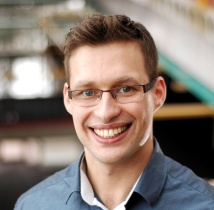A H¬ĢĽ≠ researcher is the recipient of new funding that will help acquire the cutting-edge tools needed to conduct world-class research.
The announcement was made on Wednesday, March 13 by the Honourable Kirsty Duncan, Minister of Sport and Science at Western University. The funding received by Dal’s Dr. Stanislav Sokolenko, an assistant professor from the Faculty of Engineering, is part of a larger $39 million investment that will support 251 researchers leading 186 projects at 43 universities across Canada.
The funds, which are provided through the Canada Foundation for Innovation’s CFI John R. Evans Leaders Fund (JELF), are designed to help universities attract and retain the best and brightest researchers from around the world.
‚ÄúThe Canada Foundation for Innovation has ensured Canadian researchers have the tools they need to push the frontiers of knowledge in all disciplines since 1997,‚ÄĚ said the Honourable Kirsty Duncan, Minister of Science and Sport, in a news release. ‚ÄúToday‚Äôs announcement of stable, long-term funding will help Canada continue to be an international destination for research and innovation.‚ÄĚ
Along with the funding received from the Canada Foundation for Innovation John R. Evans Leaders Fund, Dr. Sokolenko also received matching funds from the Research Nova Scotia Trust.
Video:
Utilizing cell culture biotechnology to make products at a lower cost
From basic chemicals to complex pharmaceuticals, many of today’s products are created with the help of cells. Similar to the use of yeast in alcoholic fermentation, a large number of different cell types allow us to make products that would be too difficult or costly to manufacture through purely chemical means.
While the goal of developing these cells is to take advantage of their complexity for chemical or pharmaceutical production, the same complexity also poses a challenge. How can we improve on the production process to make new products at a lower cost if it’s not known what the cells are doing?
 Dr. Sokolenko is looking to change that by better understanding the full impact of oxygen on cell cultures. His research will help develop new and better techniques for observing free radical species in cell culture and the damage they cause. And, once those techniques are developed, he will modify the liquid environment where the cells are grown through the addition of specific antioxidants, and engineer the cells to produce their own antioxidants.
Dr. Sokolenko is looking to change that by better understanding the full impact of oxygen on cell cultures. His research will help develop new and better techniques for observing free radical species in cell culture and the damage they cause. And, once those techniques are developed, he will modify the liquid environment where the cells are grown through the addition of specific antioxidants, and engineer the cells to produce their own antioxidants.
‚ÄúThe term antioxidant is thrown around a lot in a broad range of contexts from skin care products to cell culture fermentation, but the oxidation process is really quite complex,‚ÄĚ says Dr. Sokolenko. ‚ÄúCommon antioxidants like Vitamin C and Vitamin E may actually serve to enhance oxidative damage rather than protect from it in some conditions.
"This funding will be used to purchase highly specialized equipment that can actually determine the state of compounds like Vitamin C and E inside the cell to better understand what they are doing and develop more comprehensive antioxidant strategies.‚ÄĚ
A direct benefit to the Canadian consumer
Canada is the 10th-largest world market of pharmaceuticals, and reducing the cost of medication will be a direct benefit to the Canadian consumer. In addition, developing Canadian cell culture technology has the potential to generate more jobs in research and manufacturing sectors, and it can be licensed to existing Canadian cell culture media providers, or used to spin off a new company.
For more information on the John R. Evans Leaders Fund, .

